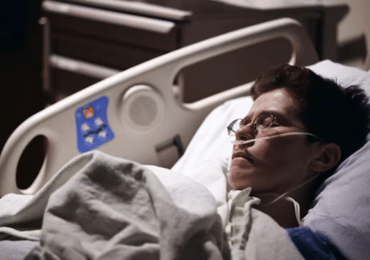A medical misdiagnosis, while a distressing experience, is unfortunately not uncommon. The fallout from such an event can be emotionally, physically, and financially burdensome. However, if you find yourself in such a predicament, it’s important to remember that there are specific proactive steps that you can take to manage the situation effectively. This document aims to guide you through the essential actions you should undertake if you have been misdiagnosed, ensuring you navigate this challenging time with clarity and confidence.

1. Find Legal Support
If you believe your misdiagnosis has resulted in physical or psychological harm, it is essential to seek legal counsel. An attorney can help investigate your case, determine if there’s indeed been negligence, and identify the responsible parties. They’ll also assist in calculating the compensation you might be entitled to, considering factors such as medical expenses, lost wages, and emotional distress.
Remember, choosing the right legal support can significantly affect the outcome of your case. For those with cancer misdiagnosis, you may require a medical malpractice lawyer with experience in this area. It’s best to research online and ask for recommendations from people in your network.
2. Seek Second Opinions
Seeking a second opinion can be critical in managing a medical misdiagnosis. It involves consulting with another healthcare provider who can review your medical history, diagnostic tests, and treatment plans, offering a fresh perspective on your health situation. A second opinion can either corroborate the initial diagnosis, providing peace of mind, or identify potential errors and suggest a different treatment path.
In a severe or complex condition, a second opinion becomes especially crucial. Some insurance providers even require it before approving specific treatments. When seeking a second opinion, choose a doctor who specializes in your condition and ensure they have access to all pertinent medical records to provide an informed viewpoint.
3. Document Everything
Documentation of all medical interactions, tests, and treatments is crucial in managing a medical misdiagnosis. This involves keeping a thorough record of all your medical appointments, the healthcare professionals you’ve consulted with, the tests that have been carried out, and the medications or treatments you have been prescribed. It’s beneficial to keep a personal health journal where you can note down symptoms, changes in your health, and any side effects you may experience from medications.

Furthermore, it’s vital to obtain copies of your official medical records. These documents provide an objective account of your medical journey and could be instrumental in proving a misdiagnosis if you decide to pursue a legal claim. Remember, patients can access their medical records under the Health Insurance Portability and Accountability Act (HIPAA). You can request these from your healthcare provider or hospital’s record department.
4. Take Care of Yourself
Amidst the challenging situation of dealing with a medical misdiagnosis, prioritizing self-care is pivotal. This means focusing not only on your physical well-being but also your mental and emotional health. Eat a healthy, balanced diet and try to maintain a regular exercise routine by your doctor’s advice. Regular physical activity promotes overall health and can help you manage stress levels.
Remember to underestimate the power of emotional self-care, too. Reach out to supportive friends or family members who can provide comfort and understanding. You may also want to consider seeking the help of a mental health professional, such as a therapist or counselor, who can provide strategies to cope with feelings of fear, anxiety, or depression that often accompany a misdiagnosis. Practicing mindfulness and relaxation techniques, like meditation or yoga, can further manage stress and promote emotional well-being.
5. Reach Out to Support Groups
You often feel relieved when you know you are not alone. Connecting with members of a misdiagnosis support group can be invaluable in offering comfort and practical advice. Many groups offer online forums where you can converse with others who have faced similar experiences and access educational resources and useful tools to manage your condition. The support you receive in such a network can give you solace and motivation as you navigate this difficult situation.
It’s important to remember that the road ahead may be long and complex, but help and support are available every step. Take it one day at a time, stay positive, and never forget you are not alone. You can come out stronger on the other side with courage and resilience.
6. Research Healthcare Resources
Medical misdiagnosis can often be financially draining, with heavy medical bills and lost wages. It’s essential to familiarize yourself with healthcare resources that may help lessen the financial burden. Many hospitals offer payment plans or charity centers where you can apply for financial aid. You may also be eligible to receive funding from charitable funds, such as those administered by the American Cancer Society or other advocacy organizations.
Additionally, you can check if any of your local healthcare providers offer free or low-cost services. Many online resources are available that provide qualified medical guidance at an affordable cost. Research these options and identify sources of assistance that could help meet your medical needs during this challenging period.
Finally, remember to keep your healthcare provider in the loop so they can help you find the resources you need. They can make referrals or guides utilizing available healthcare services and resources.
7. Speak Up and Advocate
Advocating for yourself is an essential part of managing a medical misdiagnosis. This could involve asking questions to your healthcare provider, researching information about the condition, or seeking additional opinions. It’s important to remember that as a patient, you have the right to be informed and involved in decisions regarding your care – even if it has been misdiagnosed.
If a mistake has occurred, speaking up and providing feedback is essential. Let healthcare providers know how their service impacted you to ensure they avoid repeating the same mistakes with other patients. This can also help prevent future medical negligence and create a safer environment for everyone.
Navigating a medical misdiagnosis can be an overwhelming experience, but it’s important to remember that you are not alone. From seeking legal representation to connecting with support networks, these smart actions will help you reclaim your health and well-being – and ultimately, empower you to move forward in life. Remember that you have the strength and courage within yourself to get through this challenging time, so don’t give up hope. With resilience and determination, anything is possible.

